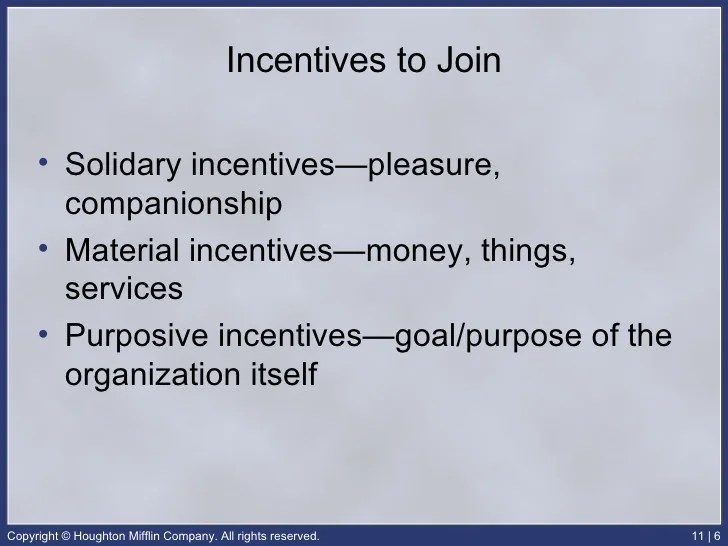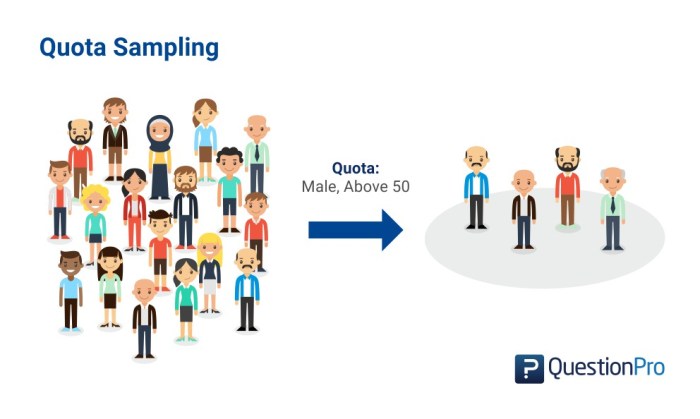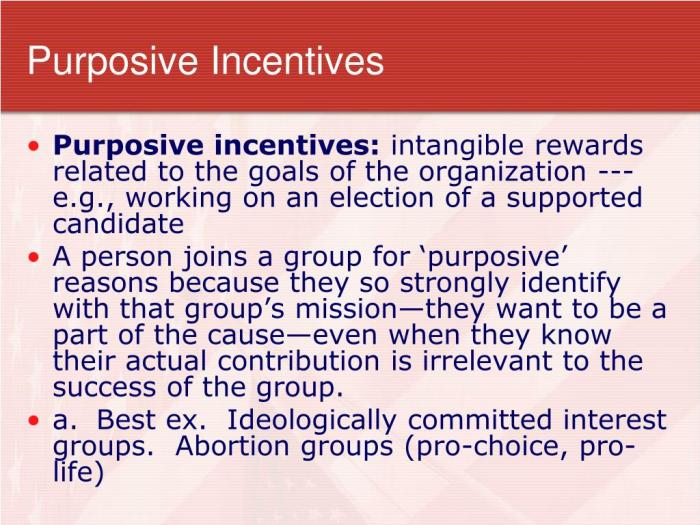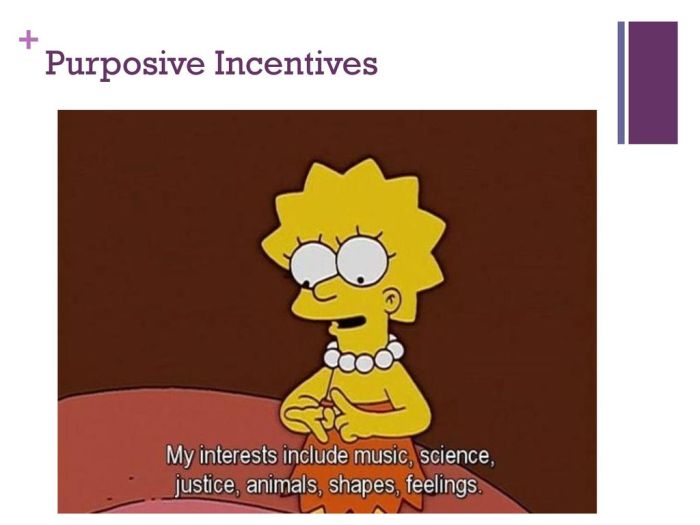Purposive incentives, a concept at the heart of government policy, are designed to influence behavior and shape desired outcomes. This comprehensive exploration of purposive incentives definition ap gov delves into their nature, types, and ethical implications, providing a nuanced understanding of their role in shaping public policy.
Purposive incentives are employed by governments to encourage or discourage specific actions, fostering desired behaviors and mitigating undesirable ones. They encompass a wide range of strategies, from tax incentives to regulatory measures, each tailored to achieve specific policy objectives.
Definition of Purposive Incentives

Purposive incentives are financial or non-financial rewards or penalties designed to influence individual or group behavior towards a desired outcome. They aim to encourage or discourage specific actions, choices, or decisions by altering the perceived costs and benefits associated with those actions.
Purposive incentives are commonly used in government policies to achieve social, economic, or environmental goals. For instance, tax breaks for energy-efficient appliances promote environmentally friendly choices, while financial assistance for education encourages individuals to pursue higher education.
Types of Purposive Incentives

Purposive incentives can be classified into different types based on their nature and application:
Financial Incentives, Purposive incentives definition ap gov
- Direct payments:Cash transfers or subsidies provided directly to individuals or organizations to encourage desired behaviors.
- Tax breaks:Reductions in taxes for specific activities or purchases that align with policy goals.
- Loans and grants:Financial assistance provided to support initiatives or projects that contribute to desired outcomes.
Non-Financial Incentives
- Recognition and awards:Public acknowledgment, awards, or honors for individuals or organizations that achieve exceptional results.
- Regulatory incentives:Changes in laws or regulations that make it easier or more difficult to engage in certain behaviors.
- Social norms and peer pressure:Campaigns or initiatives that promote desired behaviors and create social pressure to conform.
Use of Purposive Incentives in Government Policy

Purposive incentives are extensively used in government policies to influence behavior and achieve desired outcomes. Some common applications include:
- Promoting economic growth:Tax incentives for businesses, subsidies for job creation, and grants for research and development.
- Improving public health:Tax breaks for healthy food purchases, subsidies for health insurance, and campaigns to encourage physical activity.
- Protecting the environment:Financial assistance for renewable energy projects, tax breaks for energy-efficient appliances, and regulations to reduce pollution.
- Enhancing education:Scholarships, grants, and financial aid for students, tax breaks for educational expenses, and regulatory changes to improve school performance.
Design and Implementation of Purposive Incentives

Effective design and implementation of purposive incentives are crucial for achieving desired outcomes. Key principles include:
- Clarity and simplicity:Incentives should be easy to understand and access.
- Relevance and significance:Incentives should be tailored to the target population and provide meaningful rewards or penalties.
- Measurability and evaluation:Metrics should be established to track progress and assess the effectiveness of incentives.
The implementation process typically involves:
- Defining the target behavior:Identifying the specific actions or outcomes that need to be influenced.
- Selecting the appropriate type of incentive:Choosing the most effective incentive based on the target behavior and available resources.
- Setting the incentive level:Determining the amount or value of the incentive to provide the desired level of motivation.
- Monitoring and evaluation:Regularly tracking the progress and making adjustments as needed to ensure effectiveness.
FAQ Overview: Purposive Incentives Definition Ap Gov
What are purposive incentives?
Purposive incentives are government-designed strategies that aim to influence behavior by providing rewards or penalties based on specific actions.
How are purposive incentives used in government policy?
Purposive incentives are employed to encourage desired behaviors, such as promoting energy efficiency or reducing smoking rates, and discourage undesirable ones, such as tax evasion or pollution.
What are the ethical considerations involved in using purposive incentives?
Ethical considerations include ensuring that incentives are fair, equitable, and do not create unintended negative consequences or perpetuate existing inequalities.